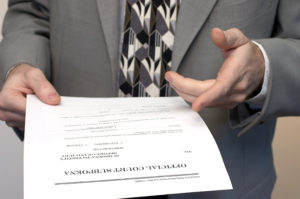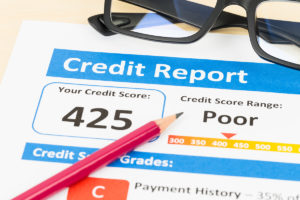
Perhaps the worst thing about having your car repossessed is that even after your vehicle is gone, your lender may not be done with you.
In some cases, lenders may file lawsuits against borrowers to recoup what they’re owed. In this blog post, we’ll look at what’s involved with being sued after a car repossession.
My car was repossessed. Now what?
 After the lender repossesses your vehicle, they will most likely sell it at an auction or through a private sale. The borrower will receive a letter from the lender with details about when and where a sale will occur. This letter may be called a Notice of Intent to Sell Property.
After the lender repossesses your vehicle, they will most likely sell it at an auction or through a private sale. The borrower will receive a letter from the lender with details about when and where a sale will occur. This letter may be called a Notice of Intent to Sell Property.
However, after the sale, the proceeds may not cover the amount to satisfy the balance owed on the auto loan. This amount is known as a deficient balance. The lender is required to send the borrower a second written letter, called a Deficiency Notice, stating the deficient balance owe, plus any additional charges, such as repo and storage fees. Even if you do not have the vehicle, you still have a financial obligation to the lender until the loan has been satisfied.
Collectors are calling for payment of my loan balance.
 After the sale of a repossessed vehicle, the lender may choose to collect the deficient balance through a collection agency or collection law firm. The borrower may receive collection calls or letters demanding payment. Collection contact must comply with the federal law called the Fair Debt Collection Practices Act. This law offers protections to consumers from aggressive collection tactics — whether the debt is owed or not.
After the sale of a repossessed vehicle, the lender may choose to collect the deficient balance through a collection agency or collection law firm. The borrower may receive collection calls or letters demanding payment. Collection contact must comply with the federal law called the Fair Debt Collection Practices Act. This law offers protections to consumers from aggressive collection tactics — whether the debt is owed or not.
I’ve received a summons to appear in court.
 The lender may decide to file a lawsuit against the borrower to collect the deficient loan balance. If you receive a summons from the court you must contact the court to let them know of your plan to defend the matter. You may choose to represent yourself, pro se, or hire an attorney to represent you.
The lender may decide to file a lawsuit against the borrower to collect the deficient loan balance. If you receive a summons from the court you must contact the court to let them know of your plan to defend the matter. You may choose to represent yourself, pro se, or hire an attorney to represent you.
IF YOU HAVE BEEN SUED DO NOT IGNORE THE SUMMONS FROM THE COURT
If you do not show up in court, the case will proceed without you and a default judgment could be entered against you. This means that a judge has ruled against you in non-criminal court, and you will be required to pay the damages or judgment amount.
A judgment was entered against me.
If a judgment was entered against you, you must address it. Even if it’s a mistake and the debt doesn’t belong to you, you will need to take action to get it resolved. Just remember, judgments are dangerous. The lender could choose to take steps, such as garnish a bank account, place a lien on the borrower’s personal property, or in some states, garnish wages.
The credit bureaus list the repossession and judgment.
 Just as lenders will report auto loan payment histories to the credit bureaus, repossessions and judgments for deficient balances will be reported as well. Judgments are considered public records, which means anyone has access to view those court filings – even prospective auto lenders, existing creditors, or possibly, employers or landlords.
Just as lenders will report auto loan payment histories to the credit bureaus, repossessions and judgments for deficient balances will be reported as well. Judgments are considered public records, which means anyone has access to view those court filings – even prospective auto lenders, existing creditors, or possibly, employers or landlords.
Judgments can remain on a consumer credit file for 7 ½ years from the filing date. Once a judgment has been paid, a “Satisfaction of Judgment” will be filed with the court and your credit report updated to show that the judgment is no longer owed.
Get Help from a Qualified Consumer Protection Law Firm
Flitter Milz is a consumer protection law firm experienced in representing consumers who have suffered from vehicle repossession, abusive collection contact, judgments from auto loan deficiencies and credit reporting errors listed by auto lenders. Contact us for a free consultation and to find out how we can help you.







